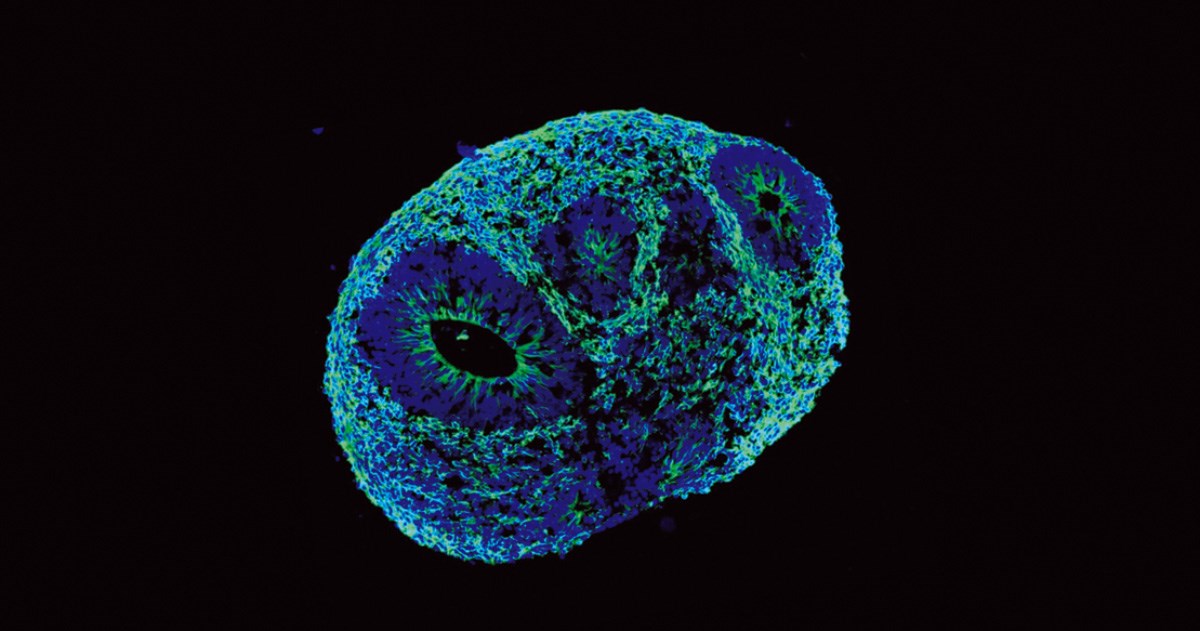Schizophrenia, whose origin is still not well understood, is considered by some specialists to be a neurodevelopmental disease that sets in as the brain matures. Juliana Minardi Nascimento, a biologist from the Neuroproteomics Laboratory at the University of Campinas (UNICAMP), and her colleagues from Rio de Janeiro and São Paulo tried to identify alterations in cell functioning that occur in the very early stages of brain formation that could lead to schizophrenia. To do so, they evaluated protein production in models representing different stages of brain maturation: immature cells (precursors of various brain cells); young neurons; and organoids (mini-brains) composed of several types of more mature cells, all generated from skin cells of healthy people and people with schizophrenia. The scientists identified around 2,000 proteins, of which a proportion that varied from 59% to 84% depending on cell maturation stage was produced in smaller quantities in cells derived from people with schizophrenia (Cell & Bioscience, December 1). “Now we can begin to determine whether increasing the level of certain proteins that are lower in the early development of schizophrenia could reverse some of the effects of the disease,” says Nascimento.
RepublishNeuroscience
The brain before schizophrenia

Mini-brain created from the skin cells of a schizophrenia patient
MINARDI-NASCIMENTO, J. et al. Cell & Bioscience. 28 nov. 2022